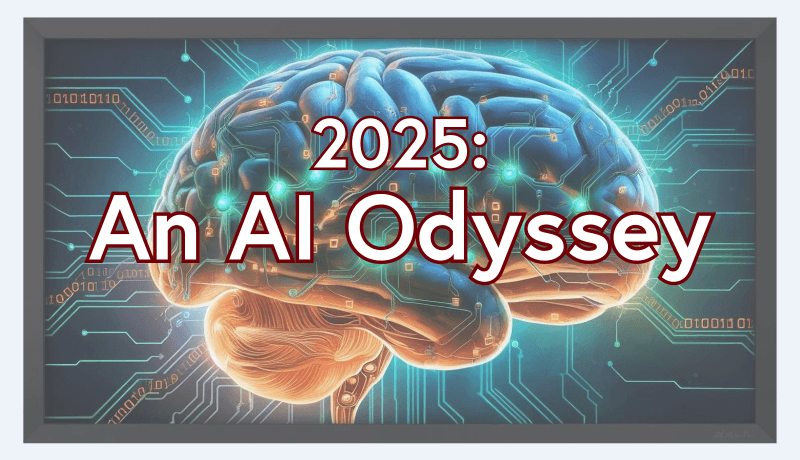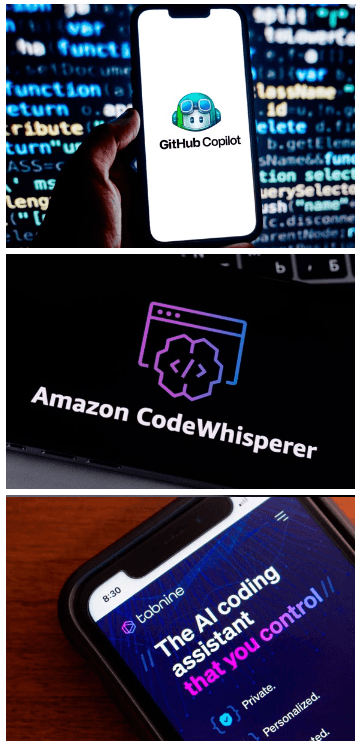2025: An AI Odyssey — The Transformative Impact on Software Development
on

As we navigate through 2025, the landscape of software development is undergoing a seismic shift, primarily driven by advancements in artificial intelligence (AI). The integration of AI into coding practices is not merely an enhancement but a fundamental transformation that redefines roles, processes, and the very essence of software engineering.
The Rise of AI in Code Generation
In recent months, AI’s capability to generate code has reached unprecedented levels. Dario Amodei, CEO of Anthropic, predicts that within three to six months, AI will be responsible for writing 90% of software code, potentially leading to AI generating all code within a year. This projection underscores a rapid evolution where AI transitions from an assistive tool to a primary coder.
Supporting this trajectory, OpenAI’s Chief Product Officer, Kevin Weil, suggests that AI could surpass human coding skills by the end of 2025, reshaping the software development landscape. Such advancements indicate a future where AI not only supports, but potentially leads, in software creation.
The trend is not isolated to trendy startups or AI research companies. Major corporations such as Google, Microsoft, and Amazon have been heavily investing in AI-driven development environments that integrate AI-generated code into their software production pipelines. With AI’s growing ability to write, debug, and optimize code, software engineers are shifting from traditional programming to overseeing and guiding AI models.
“Vibe Coding:” A New Paradigm
The concept of “vibe coding,” introduced by AI expert Andrej Karpathy in February 2025, epitomizes this shift. Vibe coding allows individuals to describe desired functionalities in natural language, with AI models generating the corresponding code. This approach democratizes coding, enabling even those without formal programming training to develop software. However, it raises concerns about code quality, security, and the depth of understanding required to manage complex systems.
Benefits of Vibe Coding
- Accelerated Development: AI-generated code speeds up software development, allowing smaller teams to accomplish more with fewer resources.
- Lowered Entry Barriers: Enables non-programmers to create functional applications.
- Enhanced Creativity: Developers can focus on innovation rather than routine coding tasks.
- Prototyping Efficiency: AI can rapidly generate multiple iterations of code, allowing engineers to test different approaches quickly.
- Faster Debugging and Optimization: AI tools can automatically identify inefficiencies and refactor code on the fly.
Risks of Vibe Coding
- Code Quality and Maintainability: AI-generated code may lack structure, leading to unmaintainable codebases.
- Security Vulnerabilities: AI can introduce exploitable flaws into software.
- Lack of Deep Understanding: Over-reliance on AI may result in developers struggling to comprehend complex code.
- Ethical Concerns: AI models trained on public datasets may inadvertently generate code that violates licensing agreements or introduces bias.
- Inconsistent Code Styles: AI-generated code may lack uniformity, making long-term maintenance difficult.
While some companies have embraced vibe coding, others remain skeptical. Platforms such as Reddit feature heated debates on the practicality and reliability of this approach, with some developers outright refusing to adopt it. Companies handling mission-critical or security-sensitive software tend to be the most resistant, preferring traditional coding methods that offer greater transparency and accountability.
Always ready with amusing analogies, Reddit is a-kindle with commentary from both sides. One Redditor’s take is:
“Vibe coding is like buying a kit to build a race car, paying your drunk uncle who ‘knows a thing or two about racing’ to build the kit for you, then telling all your friends that you built it."
AI Tools Enhancing Developer Productivity
The proliferation of AI coding assistants has been instrumental in boosting developer productivity. Tools (Figure 1) such as GitHub Copilot, the Tabnine AI code assistant, and Amazon CodeWhisperer offer real-time code suggestions, automate repetitive tasks, and assist in debugging, allowing developers to focus on more strategic aspects of software development.

Copilot, and Tabnine speed up programmer drudge work.
Source: Prima91, Photo For Everything,
Koshiro K @ Adobe Stock
Focusing on strategy rather than tactics has led some to report rapid upticks in efficiency: JPMorgan Chase reported a 20% increase in software engineer productivity after implementing an AI coding assistant. This enhancement enables engineers to allocate more time to high-value projects, particularly in AI and data domains.
The Future of Software Engineering
As AI continues to permeate software development, the role of software engineers is evolving. The focus is shifting from routine coding to tasks that require human judgment, creativity, and ethical considerations. Developers are now expected to collaborate with AI tools, guiding them to achieve desired outcomes and ensuring the reliability and security of AI-generated code.
This transition necessitates a reevaluation of educational curricula and professional training programs to equip future software engineers with the skills required to thrive in an AI-augmented environment. Emphasis on critical thinking, adaptability, and continuous learning will be paramount.
We Still Have Questions
The integration of AI into software development is not a distant prospect, but a present reality that is rapidly transforming the industry. While challenges such as job displacement, ethical considerations, and economic uncertainties persist, the potential benefits of AI-enhanced productivity, innovation, and the democratization of coding are substantial. As we progress through 2025, embracing this AI odyssey with a balanced perspective will be crucial for harnessing its full potential while mitigating associated risks.
Comments or Ideas?
If you have ideas or comments to share, you can send an email to brian.williams@elektor.com. You can also catch him on Elektor Engineering Insights each month on YouTube, and you can follow him at @briantw on X.
Editor's Note: This article (230181-M-01) appears in Elektor May/June 2025.





Discussion (0 comments)